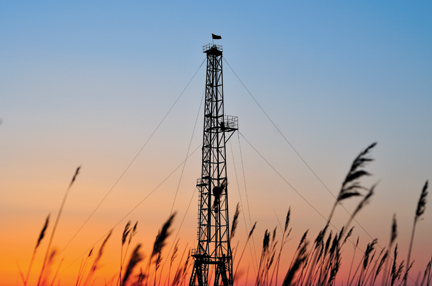Europe Has Every Right to Be Emotional About Fracking
As if he were employing the pop psychology Mars-versus-Venus framework on the issue, Shell Chief Executive Peter Voser called for a less "emotional" response to fracking in Europe. He stated that the European discussion on shale gas exploration is not factual but fuelled by emotions. So, can we thus infer that Mars — embodied by oil and gas corporations — must be focused on profits and is ready to drill? No matter who gets hurt in the process? European opponents of fracking, including Food & Water Europe, are somewhat surprised by such a facile characterization as they have always based their case against fracking on facts— such as the water intensity of fracking operations. In the United States, the Environmental Protection Agency estimated that 70 to 140 billion gallons of water are pumped into 35 thousand of fracking wells annually. What the gas industry is not admitting is that hydraulic fracturing uses water to an extent that ought to strike fear in countries that are counting on a shale gas boom, particularly as water becomes an increasingly scarce resource. Well contamination is also an issue to be considered. In January 2012, a Calgary-based company injected fluids at such a high pressure into a 1,800-metre-deep oil formation that they travelled more than 1.4 kilometres underground and ruptured an oil well near Innisfail, Alberta. There are also the documented facts of roads being destroyed through heavy machinery use and real estate prices dropping to ridiculous levels.
As if he were employing the pop psychology Mars-versus-Venus framework on the issue, Shell Chief Executive Peter Voser called for a less “emotional” response to fracking in Europe. He stated that the European discussion on shale gas exploration is not factual but fuelled by emotions. So, can we thus infer that Mars — embodied by oil and gas corporations — must be focused on profits and is ready to drill? No matter who gets hurt in the process?
European opponents of fracking, including Food & Water Europe, are somewhat surprised by such a facile characterization as they have always based their case against fracking on facts— such as the water intensity of fracking operations. In the United States, the Environmental Protection Agency estimated that 70 to 140 billion gallons of water are pumped into 35 thousand of fracking wells annually. What the gas industry is not admitting is that hydraulic fracturing uses water to an extent that ought to strike fear in countries that are counting on a shale gas boom, particularly as water becomes an increasingly scarce resource. Well contamination is also an issue to be considered. In January 2012, a Calgary-based company injected fluids at such a high pressure into a 1,800-metre-deep oil formation that they travelled more than 1.4 kilometres underground and ruptured an oil well near Innisfail, Alberta. There are also the documented facts of roads being destroyed through heavy machinery use and real estate prices dropping to ridiculous levels.
These are facts but there are also resulting emotions about compromising the quality of soil, air and water. Europeans may feel protective of their hills, meadows and valleys—and they are aware of the effects that fracking has had on the Pennsylvania landscape. They have the right to be emotional. They live on a continent that is rather small, densely populated and rich in areas of great environmental, cultural, and touristic value.
Mr. Voser, whose annual compensation for Royal Dutch Shell PLC amounted to over 5 million euros in 2010 is not paid to have such emotions. For Europeans of modest means, stewardship of the land still has an emotional component. Being emotional about fracking is not a character flaw. It is a virtue.



 By
By